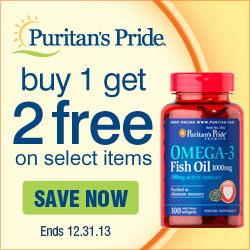Drugs, Vitamins, Minerals and Supplements
Drugs, Vitamins, Minerals and Supplements
Copyright (c) 2008 Soaring Eagle Companies LLC
Many people nowadays are turning to “organics” and “naturals” otherwise known as herbals. The rising popularity of herbal supplements has created a new fad if not a new health lifestyle. But before you join the bandwagon, here are some things you need to know about this mean, “green” dietary supplementing machine.
What are vitamins, minerals, supplements and drugs?
DRUGS are chemicals that can prevent, prolong the life, treat other effects of a health condition, improve the quality of life, and/or cure ailments and diseases, or alter the function of any part or chemicals inside the body. These drugs have approved therapeutic claims.
VITAMINS are natural substances found in living things such as plants. Vitamins must be obtained in the body from foods or supplements as they cannot usually be produced by the body.
MINERALS are found in plants. Plants get their minerals from the soil ‘ soil gets minerals from water washing over rocks. For vitamins to do their job, they require minerals. Minerals must also be obtained from food or supplements.
SUPPLEMENTS are vitamins and minerals that have been extracted from a plant or created in a laboratory and put into a form that can be ingested and used by the body. They are effective supplements, ineffective supplements and hazardous supplements. Herbal supplements are not classified as drugs but as dietary supplements.
Most of the manufactured medicines we now have once came from animals and plants. Through the years, chemists isolated the life-saving or life-curing components and separated them from the harmful ones. This lead to the further drug research and drug development that lead to the production of a different variety of drugs for many ailments and conditions from synthetic sources. But still we have semi-synthetic drugs, as well as drug that more or less approximate more natural composition. Since herbal supplements are made from a mixture of crude herbs reduced into powder or gel form, and later on packaged as tablets and capsules, there is a possibility that life-threatening or at least body chemistry-altering components are still present, thus the expression of concern from the medical community.
Vitamins and minerals go from your stomach to your intestines. They then go through a very complex allocation system whereby the body distributes certain vitamins and minerals to parts of your body based on its own priority system.
If a nutrient is needed in a certain organ that if (the body) deems more important, it will take the nutrient from a less important organ, and allocate it to a more important organ. Sort of a “rob Peter to pay Paul” action. That’s why it is critical to maintain proper vitamin & mineral levels.
Vitamins and minerals in your body should not be viewed as independent substances, but rather as a cooperative network of nutrients working together. If one nutrient is missing, it throws the entire network of nutrients out of balance.
In his book Prescription for Nutritional Healing, James F. Balch says: “A deficiency of a vitamin or mineral will cause a body part to malfunction and eventually break down ‘ and, like dominos, other body parts will follow.”
What do Vitamins and Minerals Do for You?
Illness and disease are not “caught.” One doesn’t catch cancer, heart disease or a cold. You create these ailments with deficiencies based on what you eat or don’t eat.
Vitamins & minerals are involved in the release of energy from digested foods. Strong, lasting energy levels are good indicators of healthy vitamin and mineral intake.
Skin clearness, tone, and elasticity; hair strength, thickness and color; fingernail strength, color and texture all depend on vitamins and minerals. Some people don’t look 50 years old at 30. Some look 30 at 50.
Brain function, ability to concentrate and memory require proper vitamin and mineral levels.
Is there a growing concern with the use of herbal supplements?
Yes. With the rising popularity of using and consuming anything herbal or organic is the proliferation of fake herbal supplements that threaten to endanger lives. If that’s the case, then why are herbal supplements given drug administration approvals? One way of ensuring the safety of the people is to have all candidate drugs, food, drinks, and dietary supplements registered with the proper authority. Otherwise, they would pose more risk with these things being sold in the black market for a hefty sum. We could ensure the quality and safety of herbal supplements if they get proper classification with the food and drug administration. Moreover, people may be able to file the proper complaints in the event a worsening of health condition is proven to be linked to the use of a particular herbal supplement.
Is using herbal supplements worth the risk?
Yes. It cannot be discounted that many who have tried herbal supplements experienced an improvement in their health










